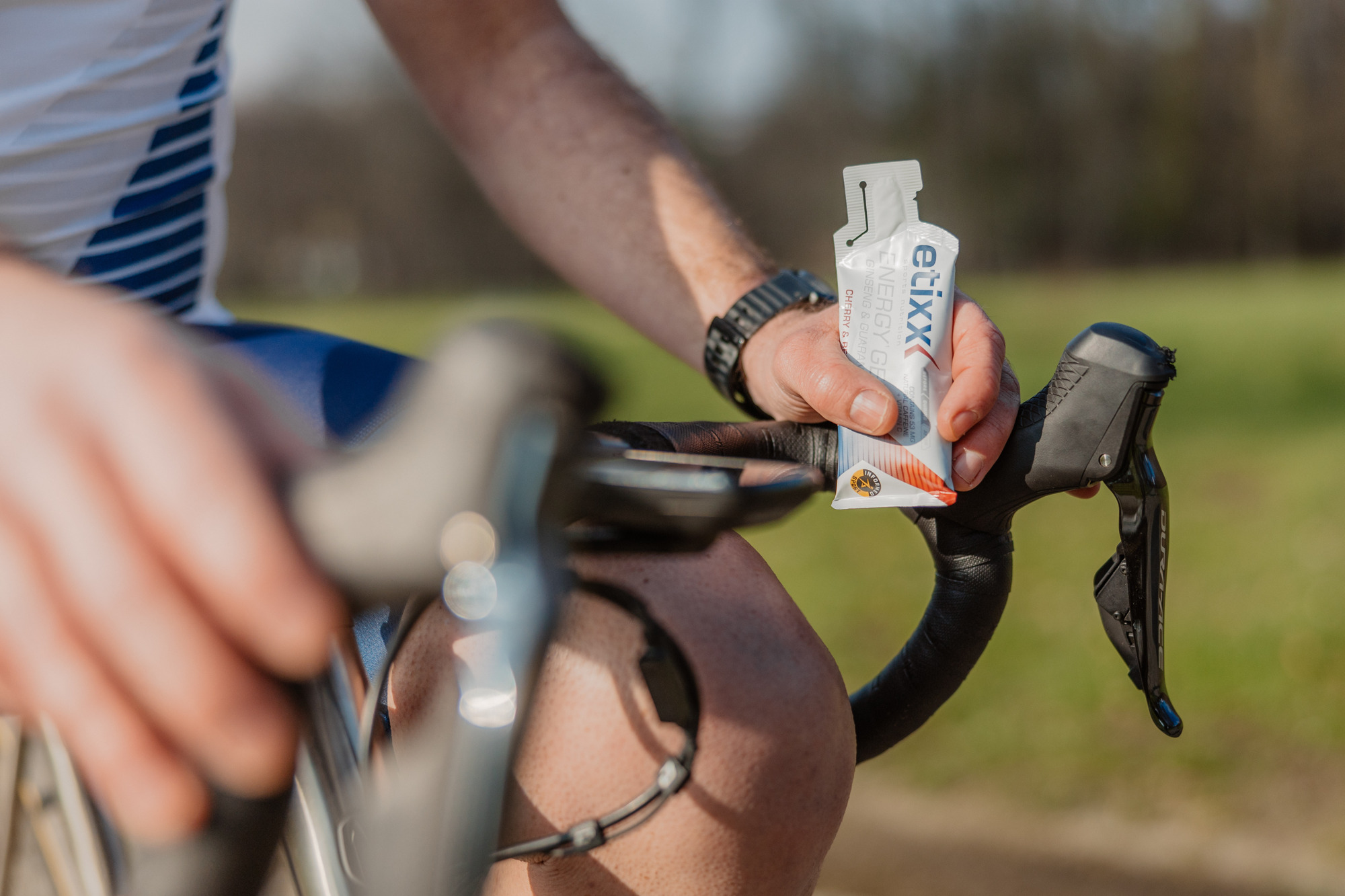Carbohydrate intake guidelines for prolonged exercise
Friday 23 February 2024

The current trend in the endurance sports world is to take in as many carbohydrates as possible with the aim of avoiding the man with the hammer and thus maximising performance. Often, high amounts of carbohydrates are ingested blindly, sometimes up to 120 grams per hour, without considering whether this is effectively performance-enhancing or not. But what is the desired amount and composition in such prolonged efforts? And for whom is it ultimately appropriate? In the blog below, exercise scientist Dr Eline Lievens from the University of Ghent shares the 3 main guidelines.
1. Respect carbohydrate intake
Since there is no correlation between the amount of carbohydrates you can consume and your body weight, consumption recommendations are expressed in grams per hour. The longer the duration, the higher the intake. Moreover, you can exercise much more intensively with carbohydrates than with fats. But fats are naturally present while carbohydrates have to be absorbed in the muscles and liver and are limited in supply. If you exercise for less than 1 hour, you will not need carbohydrates during your physical activity. It is then especially important to take enough carbohydrates beforehand such as a carbohydrate-rich meal at the latest 90 minutes before. For 1 to 2 hours of exercise, 30 grams of carbohydrates per hour is the recommended amount. For efforts between 2 and 3 hours, you need 60 grams of carbohydrates per hour while for endurance performances over 3 hours, your body demands 90 grams of carbohydrates per hour.
2. Aim for 2:1 ratio of glucose:fructose
If you cross the 3-hour mark, you should therefore aim for the highest carbohydrate intake per hour. Here, it is important not to exceed the absorption capacity of the gastrointestinal system. Our body can absorb a maximum of 60 grams of carbohydrates from the same carbohydrate source per hour. But absorbing higher amounts can cause gastrointestinal problems due to an imbalance between intake and absorption. However, 60 grams is too little for such prolonged efforts making it essential to combine two different carbohydrate sources such as glucose and fructose during those types of efforts. By using other transporters in your gut for carbohydrate absorption, your body is thus able to absorb more than those 60 grams of carbohydrates per hour and you can still aim for an intake of 90 grams of carbohydrates. Before applying this in competition, it is recommended to train your nutrition plan.
For physical activities between 2 and 3 hours, you may well experiment with the glucose-fructose combination to let your body adjust. But it is not a must if you do not go above 3 hours.
3. Higher intake not interesting for every athlete
Nowadays, there is a lot of scientific research to increase carbohydrate intake to 120 grams of carbohydrates per hour for efforts over 3 hours. Today, there is still too little scientific evidence that effectively demonstrates that such a high carbohydrate intake would effectively boost performance for every athlete.
Yet there are already some, scientific studies showing that in extremely long endurance efforts such as a mountain bike marathon or a granfondo, an intake of 120 grams of carbohydrates per hour can give your body positive effects. Muscle strength and aerobic capacity would then be promoted to achieve better performance. Moreover, there is less muscle damage afterwards. The only comment here is that such studies were always conducted during very extremely prolonged efforts at a high intensity and always with highly trained athletes. The fact that top athletes can consume more carbohydrates compared to amateurs and recreational athletes plays a major role in the outcome of such a study.
From this, we conclude that professional athletes who perform prolonged efforts at high intensity could well benefit from the addition of 30 grams. This is also the reason why these high intakes are increasingly used in the pro peloton. It is important to bear in mind here that every body reacts differently. One athlete will have no problem absorbing 120 grams while that amount will not work for someone else. For amateurs and recreational athletes, 90 grams of carbohydrates per hour remains the recommendation for efforts longer than 3h for optimal sports performance.



